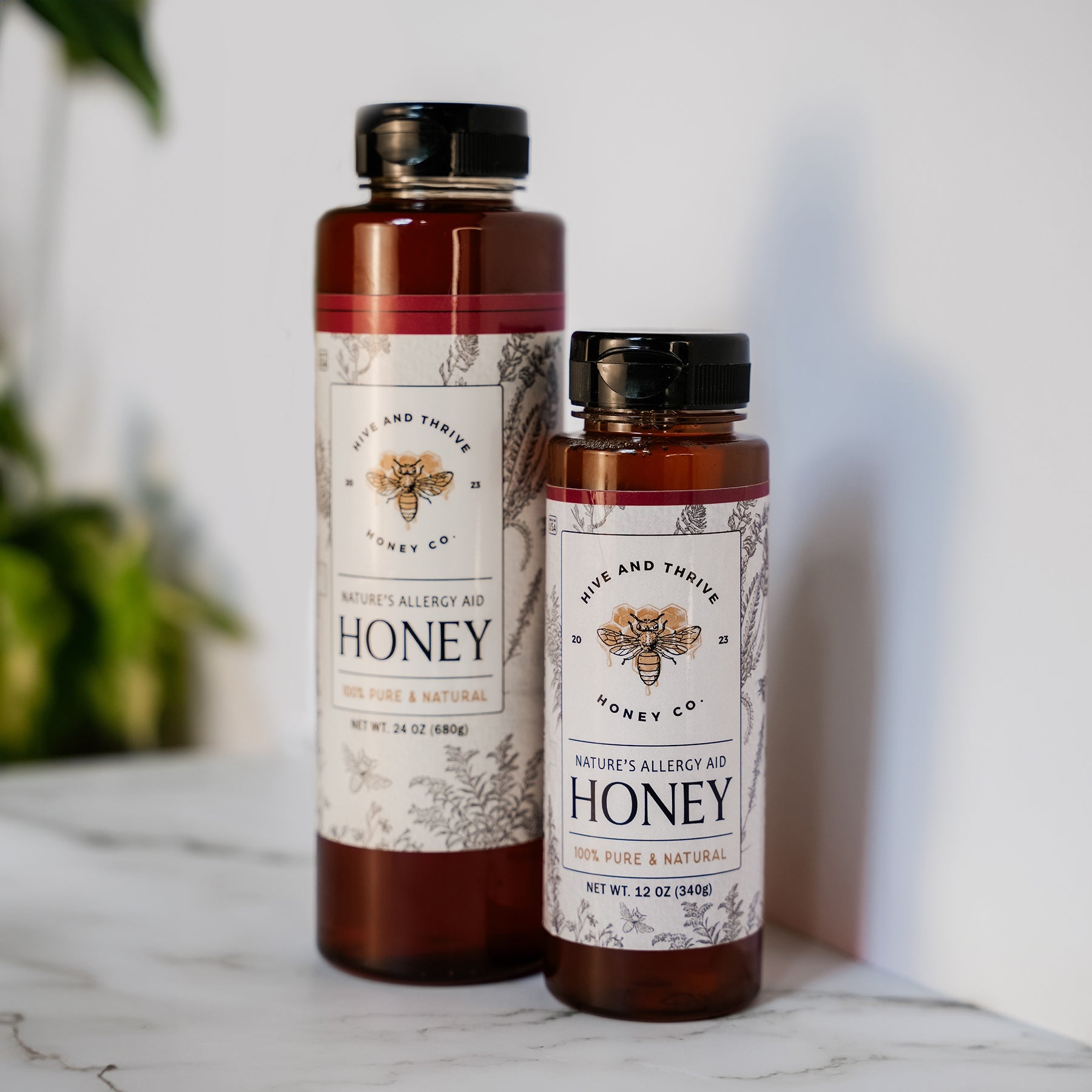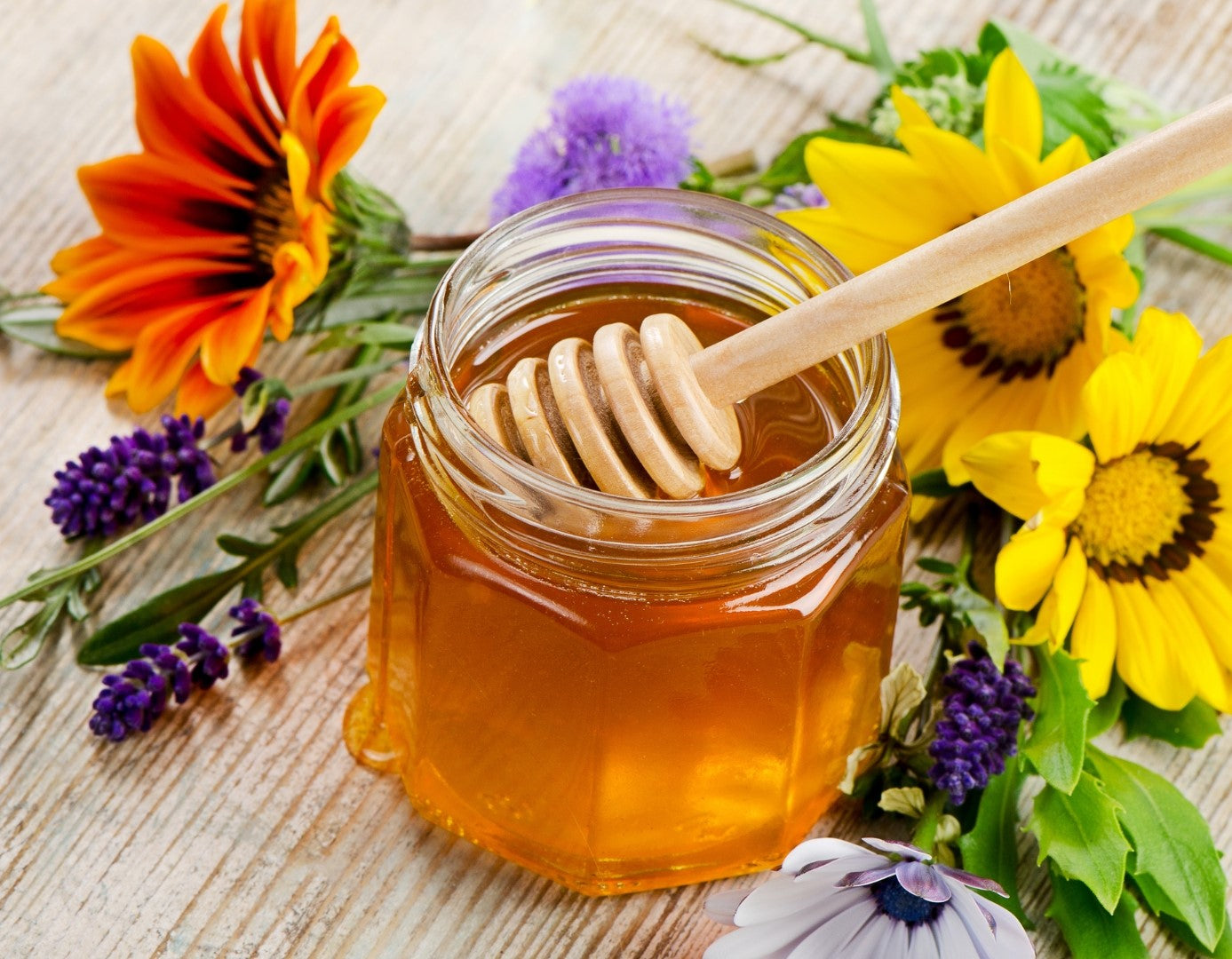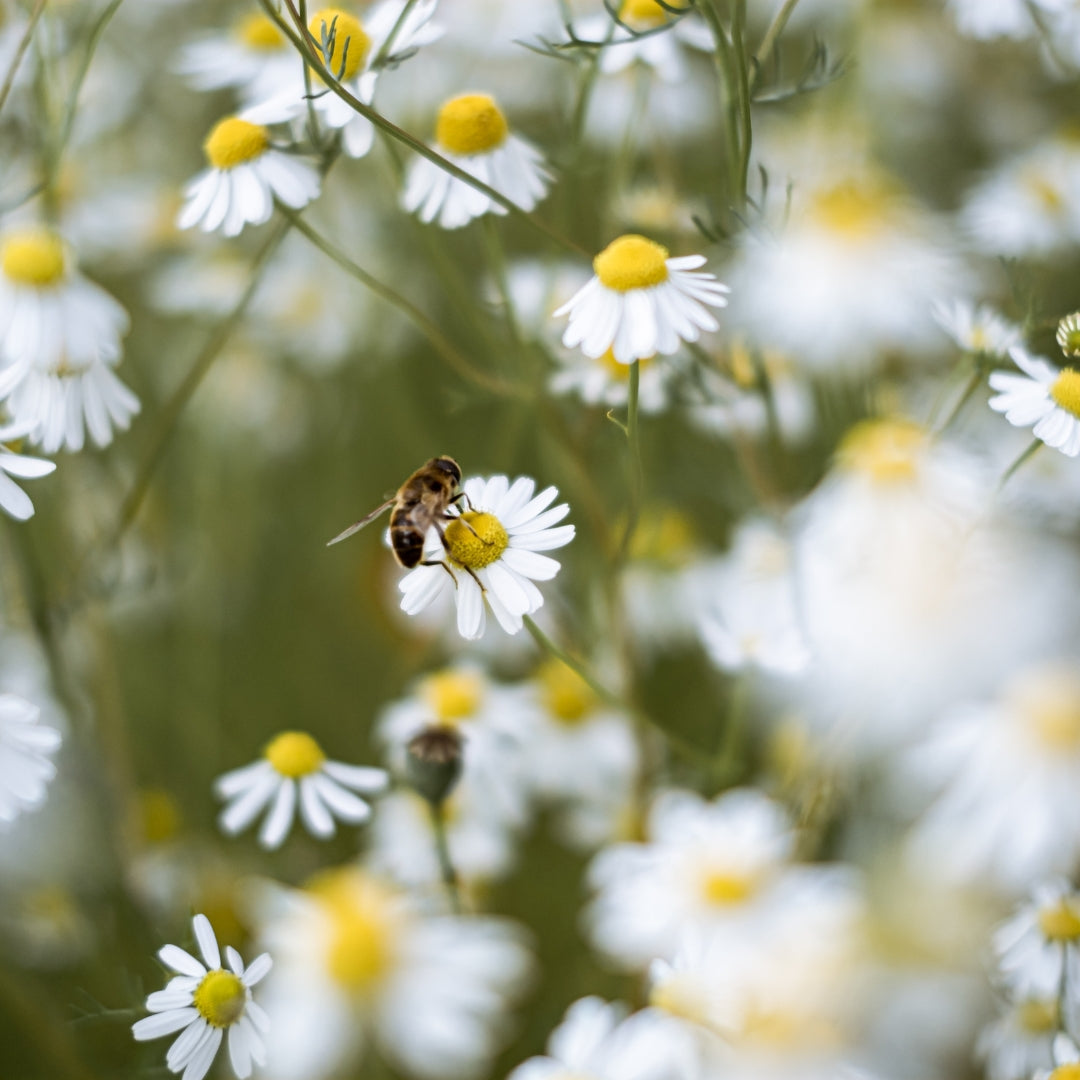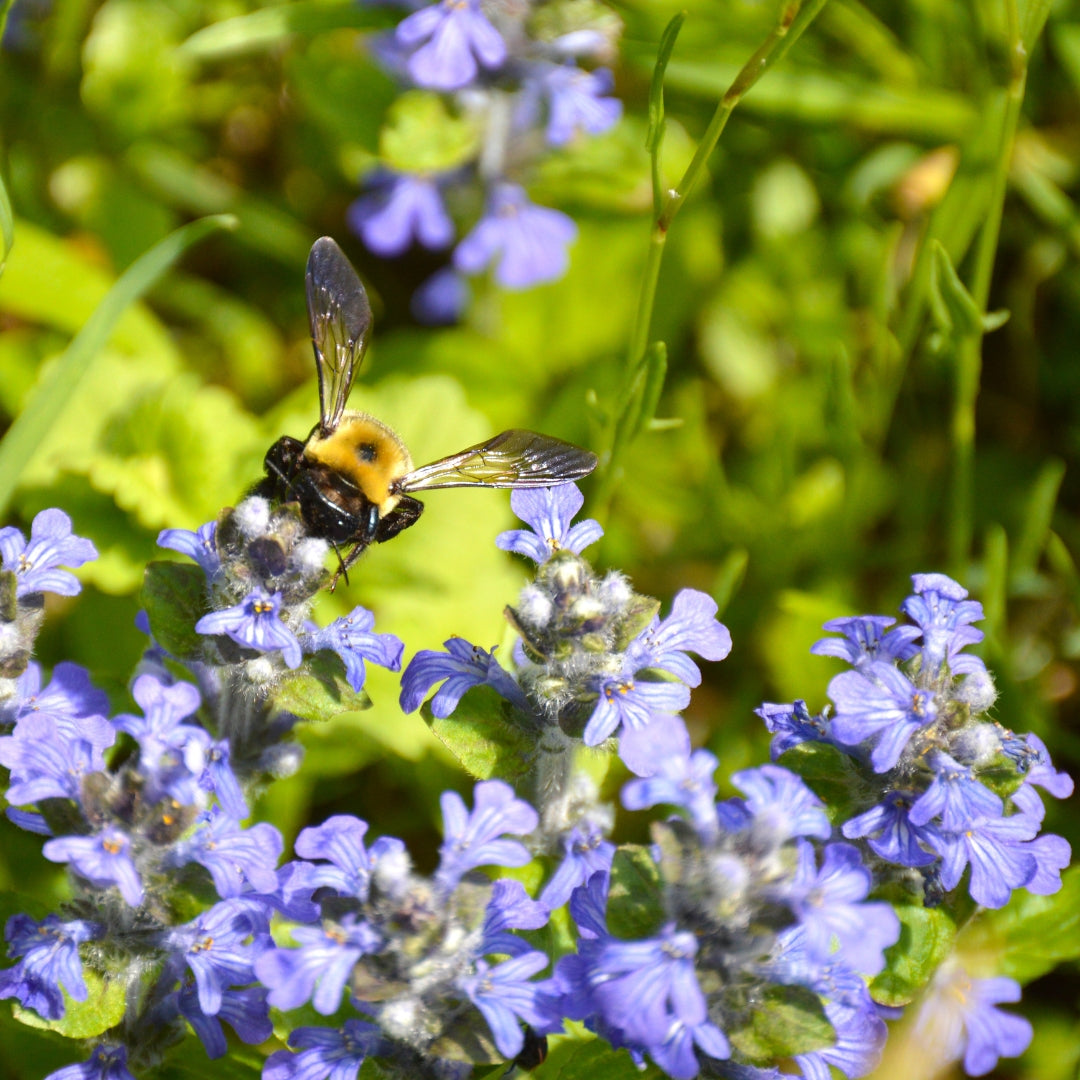
Hive & Thrive Honey Co.
Introducing our Nature's Allergy Aid Honey, a harmonious fusion of Mountain Wildflower and Sourwood honey. This exquisite blend combines the delicate floral notes of wildflowers from mountain meadows with the rich, buttery undertones of Sourwood honey, renowned for its smooth texture and aromatic profile. Each spoonful not only delights the palate but also harnesses the natural benefits of local honey, making it a perfect choice for those seeking a delicious way to support their immune system against seasonal allergies in the months of April - July.
Nectar Source: Multiple Wild Mountain Plants & Sourwood Trees
Color: Ranging from light amber to deep golden
Pairs Well With: Everything! A great all-purpose honey.
Tasting Notes: A buttery smooth, sweet floral blend

Local honey contains traces of pollen from local plants. Consuming this honey regularly might help desensitize your body to these pollens, similar to the way allergy shots work by gradually exposing you to the allergen.
Honey has anti-inflammatory properties, which might help reduce the symptoms of allergies. Inflammation is a common response in allergic reactions, so reducing it can alleviate symptoms.
Honey can soothe a sore throat and reduce coughing, which are common symptoms of seasonal allergies.
Choose Local Honey: The honey should be sourced locally to ensure it contains the pollen from plants in your area.
Daily Consumption: Consume a teaspoon of local honey daily starting a few months before allergy season to help build immunity.
Incorporate into Diet: Mix honey into your tea, spread it on toast, or eat it straight from the spoon.
Honey doesn't expire if it's natural, properly preserved, and stored in a sealed container.
We recommend storing your honey on the counter or in the cabinet of your kitchen away from direct sunlight. If your honey hardens over time, you can soften the honey by placing the bottle in a bowl of warm water for 30 minutes.
Please do not give honey to children younger than 1 year old.
Our natural honey is strained, not pasteurized.
The welfare of our bees is our top priority, that is why we take proactive measures when harvesting honey to ensure that our bees remain safe. When bees are harmed in the harvesting process, this is often the result of stinging a beekeeper, but not from the honey harvesting process.
Honey is used as a natural remedy for seasonal allergies. The idea behind using honey for allergies is that it might work similarly to an allergy shot. Here’s how it can help:
Local honey contains traces of pollen from local plants. Consuming this honey regularly might help desensitize your body to these pollens, similar to the way allergy shots work by gradually exposing you to the allergen.
Honey has anti-inflammatory properties, which might help reduce the symptoms of allergies. Inflammation is a common response in allergic reactions, so reducing it can alleviate symptoms.
Honey can soothe a sore throat and reduce coughing, which are common symptoms of seasonal allergies.

Choose Local Honey: The honey should be sourced locally to ensure it contains the pollen from plants in your area.
Daily Consumption: Consume a teaspoon of local honey daily starting a few months before allergy season to help build immunity.
Incorporate into Diet: Mix honey into your tea, spread it on toast, or eat it straight from the spoon.
